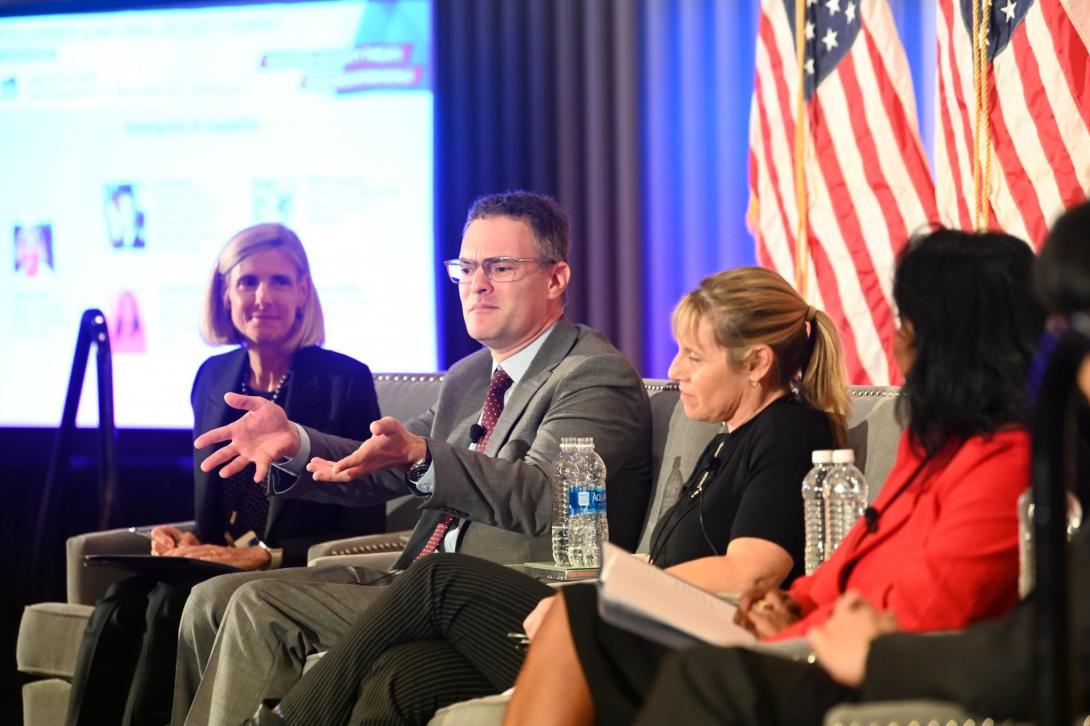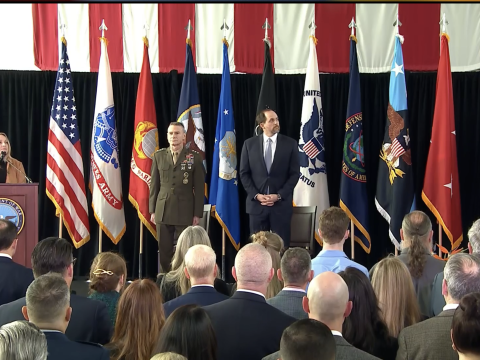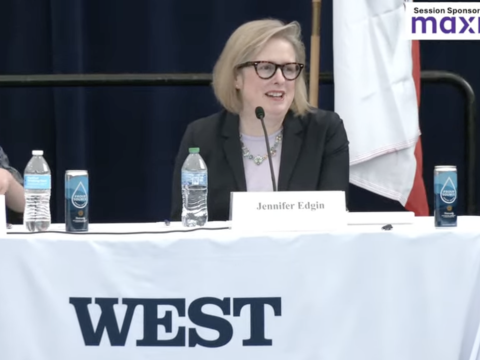Intel Summit Panelist: Let's Pipeline the Nerds and Win the AI Game
The understanding of artificial intelligence (AI) has shifted dramatically since its first introduction in the 1950s, and its evolution still leaves many perplexed.
“AI is not even really a thing, it’s killer robots,” is what Patrick Biltgen, principal at Booz Allen Hamilton, used to hear among industry and government members.
The launch of platforms like ChatGPT altered perspectives and created an AI-obsessed phenomenon in which clients now ask, “Do you have any AI? And like, how do I get one of them?” Biltgen joked.
However, before signing any contracts with yet another company offering so-called state-of-the-art AI capabilities, the intelligence community (IC) must pinpoint their specific challenges.
Too often, Biltgen told the Friday audience at the 2023 Intelligence & National Security Summit, people are in search of the most innovative technology to find the bad guys, and automatically target and neutralize them on the battlefield. Easy enough, right?
“I’m like, settle down. It takes 30 minutes to log onto the computer,” Biltgen continued. “Let’s work through the problems together and not just either sprinkle AI on it or pretend it’s going to solve itself.”
The CIA, according to Lakshmi Raman, the agency’s director of AI innovation, is exploring large language models to translate vast amounts of written data through deep-learning algorithms.
AI’s advanced capabilities can add an exponential amount of efficiency for the workforce, Biltgen suggested.
Joining Biltgen and Raman on stage were Rachel Grunspan, IC AIM director at the Office of the Director of National Intelligence; Jason Wang, technical director of computer and analytic sciences research organization at the National Security Agency; and Teresa Shea, senior advisor at the global public sector of SandboxAQ, who moderated the “Scaling-Out AI Capability” panel.
As with any new technology, implementation will require a cultural shift. The understanding that AI will serve as an assistant may be erroneous, Biltgen explained. “We think we’re in charge, and the emotional shift might be, we’re helping it, and we’re doing the last 10%. And it might be less emotionally fulfilling than when we were doing the whole job.”
Raman echoed Biltgen’s statements, adding that change is inevitable but essential in successfully scaling AI.
Biltgen believes that removing TS/SCI clearance and college degree requirements could be extraordinarily valuable for the IC.
“If you say, ‘Well they have to have this clearance, they need the counterintelligence polygraph, it takes a year to get,’ well, then I guess we’re not going to get there before China does,” he affirmed.
Following the most recent classified document leak by a 21-year-old Air National Guardsman, the community has become much more fearful of allowing clearances.
However, relaxing current constraints shows great potential in advancing agency missions.
Biltgen addressed his fellow panelists with a hypothetical, “Maybe there’s a separate campus where we’re pipelining all our nerds, and some of them will become cleared, and some of them maybe never will.” AI, he concluded, is the perfect technology for such candidates to spark real change.





Comments